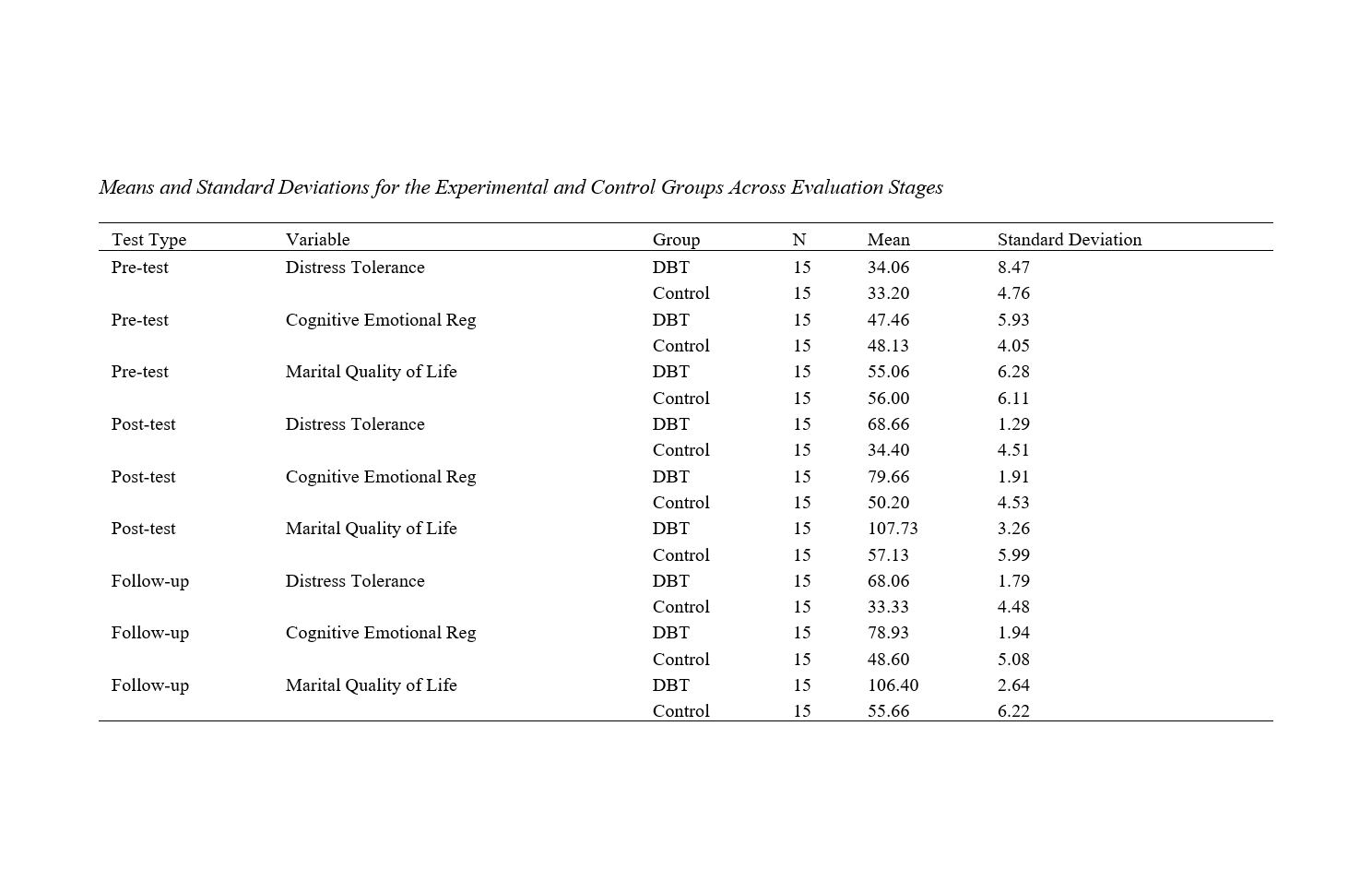Effectiveness of Dialectical Behavior Therapy-based Skill Training on Distress Tolerance, Emotional Cognitive Regulation, and Marital Quality of Life in Women with Recurrent Miscarriages
Keywords:
Women with recurrent miscarriages, distress tolerance, emotional cognitive regulation, marital quality of life, Dialectical Behavior Therapy-based skill trainingAbstract
Objective: This study aimed to investigate the effectiveness of Dialectical Behavior Therapy (DBT)-based skill training on distress tolerance, emotional cognitive regulation, and marital quality of life in women with recurrent miscarriages.
Methods: The population consisted of all women attending infertility clinics in Tehran during 2019-2020. A sample of 30 women was selected through convenience and purposive sampling based on inclusion and exclusion criteria, and randomly assigned to experimental and control groups (15 in each group). The instruments used in this study included: the Distress Tolerance Scale by Simons and Gaher (2005), Cognitive and Emotional Regulation Scale by Garnefski, Kraaij, and Spinhoven (2006), and Marital Quality of Life Scale by Fletcher, Simpson, and Thomas (2000). Repeated measures and a significance level of .05 were used for statistical analysis.
Findings: The results showed significant differences in means between the two groups at pre-test, post-test, and follow-up stages, with significant improvements in distress tolerance, emotional cognitive regulation, and marital quality of life. The effect sizes of this treatment were 0.885, 0.910, and 0.983, respectively.
Conclusion: Given the confirmed effectiveness of the treatment, it is recommended that these women receive psychological treatments in conjunction with medical treatments.
Downloads

Downloads
Additional Files
Published
Issue
Section
License

This work is licensed under a Creative Commons Attribution-NonCommercial 4.0 International License.




















